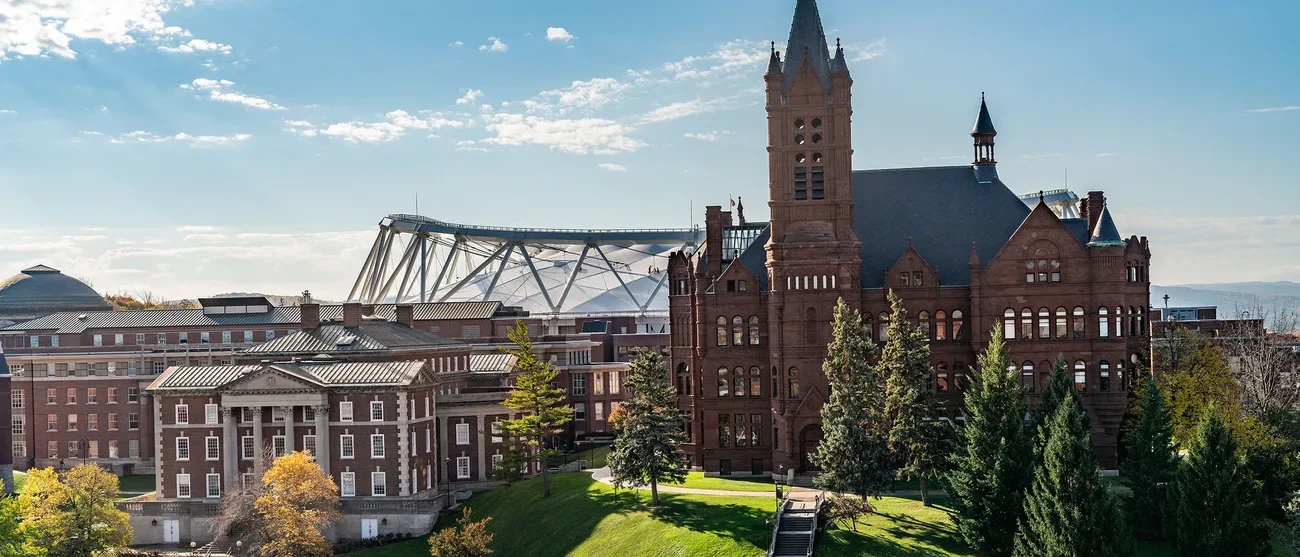

Syracuse University
History
Study detals
: Bachelor's degree : B.A. History : Full time : 36 MonthRequirements
If you have completed academic work outside the U.S., you must provide official academic credentials as well as English translations of the documents. If only one document is available, we will accept notarized or certified copies of the original document. If translations are needed, it is your responsibility to have the credentials translated by a reputable translation and evaluation service. Syracuse University will not provide translations for you. A key to the marking system or grading scale should also be included if it is not indicated on the transcript.
- First-year Students: Attending and graduating from in-person secondary schools based in the United States for at least three full academic years (Grades 10-12).
- Transfer Students: Have completed at least 24 credits in person at a post-secondary institution in the United States. Students must have earned a cumulative GPA of 3.0 or higher, excluding ESL curriculum.
English Language Requiements
- IELTS is not required. as part of the admission process all students will take the VEPT test administered by interlearn
- VEPT costs - (50$)
Pre-Sessional (20 weeks) 37 - 40
Pre-Sessional (12 weeks) 41 - 45
Pre-Sessional (6 weeks) 46 - 50
Inernational Year One - 51+
Speciality
International Year One in Available (47 200)
Please note that students completing the British curriculum are not eligible to apply upon completion of the IGCSE/GCSE; we require at least one additional year of education. Additionally, we do not accept the BTEC for admission at this time.
Progressing students into Syracuse University receive the following merit awards for each
subsequent year of enrollment based on the cumulative GPA earned upon the completion of the 30 credit hours:
• A GPA between 3.25 and 3.49 is $10,000 per year
• A GPA between 3.5 and 3.74 is $15,000 per year
• A GPA greater than 3.75 is $20,000 per year
Additional information
Degree Overview
An understanding of the past is essential to shaping the present and future. History majors and minors are asked not to memorize facts, but to develop the reading, writing and research skills necessary to understand the past and face the future. The undergraduate program leading to a B.A. in history provides rigorous training in research, analysis, and writing. Because students of history learn to evaluate evidence, write well, and think clearly, the history major is excellent training for almost any career.
Study Reasons
The B.A. in history provides the analytical and research skills needed for future success in this diverse field, providing students the opportunity to specialize by region, time period or issue area.
Study topics that society continues to grapple with, like violence, political power and religion.
Award-winning faculty members